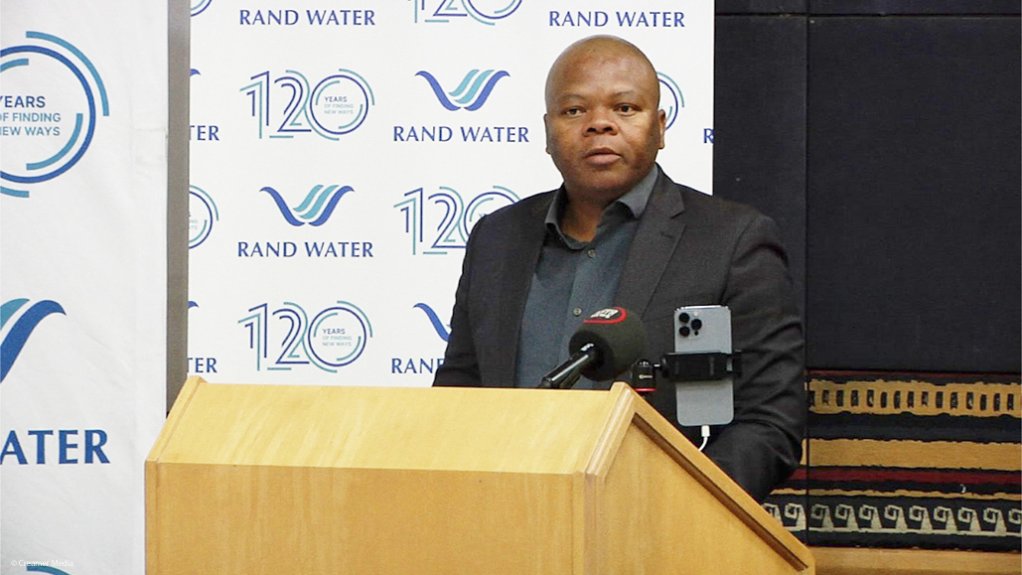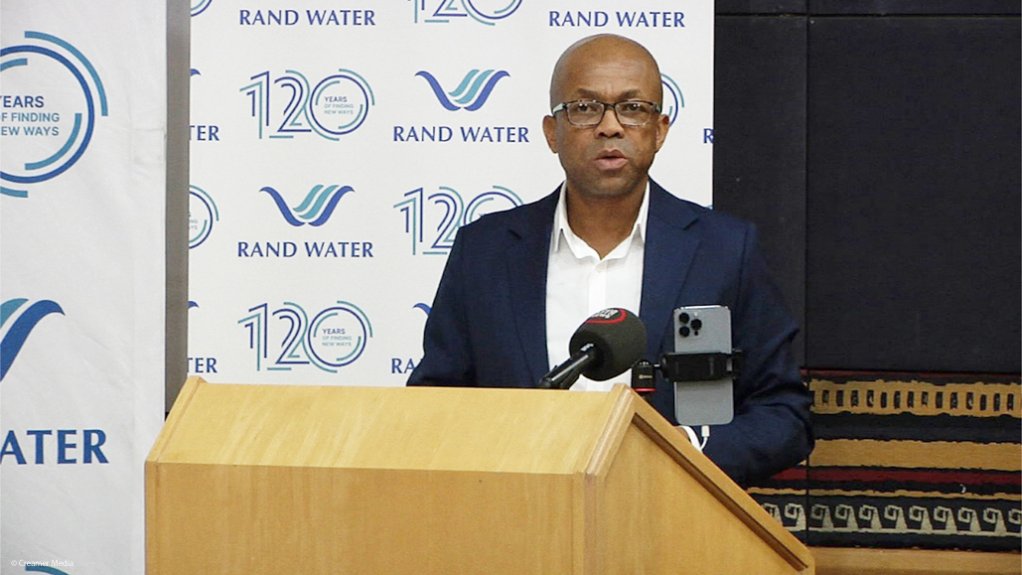Water utility Rand Water continues to over-abstract from the Integrated Vaal River System as it works with municipalities to help them reduce consumption, physical losses and nonrevenue water.
Speaking to the media at its weekly water supply briefing on Friday, CEO Sipho Mosai said that Rand Water was abstracting from the catchment as much as possible, and was currently exceeding its licence limits.
The water utility’s Department of Water and Sanitation- (DWS-) issued licence allocates 1 347-million cubic litres a year, but Rand Water is abstracting 1 680-million cubic litres currently amid high peak demand and nonrevenue water to supply municipalities.
Rand Water COO Mahlomola Mehlo said that while there had been some improvements in the systems, the three major metropoles’ consumption remained above targeted levels.
Collectively, the City of Johannesburg (CoJ), the City of Tshwane (CoT) and the City of Ekurhuleni (CoE) are consuming 3 256-million litres a day as at October 30, up from 3 162-million litres a day as at October 23, and above the targeted 2 926-million litres a day.
While the CoJ reported a week-on-week decline in consumption, from 1 670-million litres a day last week to 1 654-million litres a day this week, it still remained above the targeted consumption of 1 493-million litres a day.
Mehlo noted that the CoT’s consumption this week of 708-million litres a day was an increase from the 668-million litres a day last week and also remained above the targeted 620-million litres.
Further, the CoE’s consumption, which remained below the targeted 813-million litres a day from October 31, 2022, until October 9, 2023, has increased from 824-million litres a day last week to 894-million litres a day this week.
According to the DWS, in a response to a parliamentary question earlier in September, the CoJ has an allocated volume of 1 356-million litres a day, while the CoT and CoE has allocations of 667-million litres and 1 022-million litres a day, respectively.
Mehlo further noted that all three metropolitans had water and no bulk water challenges were reported.
While the South Hills and Brixton systems reported issues earlier in the week, as of Friday morning, these had been resolved, he said.
In Tshwane and Ekurhuleni, no bulk issues have been reported; however, there are localised repair and maintenance interruptions, which the municipalities’ teams are attending to.
Mosai commented that in the short term, Rand Water was meeting daily with stakeholders, including metropolitans, to review the systems’ yield, work out modalities in terms of how that water should be equitably shared and work on efficiencies to ensure consistent water supply.
The water utility also established Project 1600 to unlock water conservation and demand management strategies and assist municipalities.
It is in the best interest of Rand Water to assist the municipalities, he said, as the larger the nonrevenue water got, the higher the chance the municipalities would not pay for the water provided by the utility.
“We need to work long and hard with our municipalities for them to reduce the nonrevenue water,” he said.
“Our debtor days are going the wrong way, from 35 days a few years ago to 85 days currently. We have arrangements with most of the municipalities [but] the issues of debtors days and late payments are of concern.”
EMAIL THIS ARTICLE SAVE THIS ARTICLE ARTICLE ENQUIRY
To subscribe email subscriptions@creamermedia.co.za or click here
To advertise email advertising@creamermedia.co.za or click here














